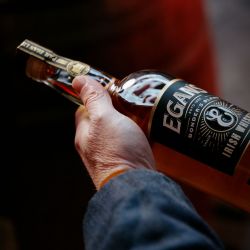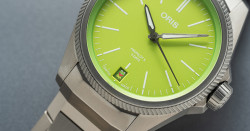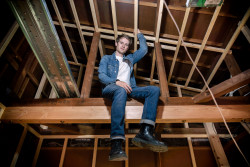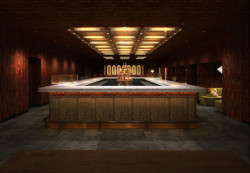
Originally published on metropolis.co.jp on June 2011

Courtesy of Codaagency
There’s been a new lease of life in UK dubstep over the last couple of years. Do you put this down to chance, or some definitive moment, track, or cultural shift?
It’s exploded globally which has been amazing to witness. Something that grew out of a handful of producers and DJs from a London suburb is now filling stadiums in the US. Most European cities have a regular dubstep or bass night. A major catalyst was dubstep emerging from the underground [at a time] when technology was changing the way we listen to music. The “YouTube culture” of uploading new music became popular, and dubstep was the new buzzword. Seminal shows like Mary Anne Hobbs’ Dubstep Warz on BBC Radio 1 cemented dubstep as a movement and led to a massive influx of new producers, and the worldwide scene grew exponentially.
Does the complexity and delicacy of new artists like yourself, Ramadanman and Joy Orbison represent a new approach to making dubstep?
I see it as a recurring natural progression: new artists taking inspiration from what has come before, then adding their own voice. When I first heard dubstep circa 2005 there didn’t seem to be any “rules” apart from that tracks needed bass and to be mixable by DJs. Everything else “on top” was there to be explored. Today there is a template that could describe the majority of mainstream dubstep, and perhaps as a result there are now artists that have emerged from the scene intent on keeping the original spirit of alive.
Some of your tracks, such as “Stop What You’re Doing,” have old-school elements, while there’s a certain “click” sound there, too. Is this an old-meets-new ideal?
My sound is about combining familiar elements that you don’t usually hear in the same track. I’ve robbed my favorite sounds from grime, Chicago house and acid and have thrown them together, hopefully in a way that has some coherence and makes people dance. I try to gauge reactions from energy in the club rather than what “purists” might have to say. The energy has been emphatically mixed!
Is it cliché to say bass is still the key element?
Bass is still the key element. I’ve slowed my sets down so I can play more house-based music, although I try and keep a flow and move through different sections depending on the crowd. It might be 20 minutes of rowdy electro-inspired tracks going deeper into techno, like [artists] 2562 and Scuba, then into more tribal things. It really depends on the crowd. My job, at the end of the day, is to make people dance and have a good time.
You were juggling two creative fields for a while. What lay behind the choice to focus less on graphic design and more on music?
Doing music full-time was an itch I couldn’t scratch. I was at my day job as a web designer thinking about music, but the hours were really long. By the time I got back in the evenings I was too fried to get any ideas down. Something had to give.
What have you learned from operating your start-up label, Hemlock?
Hemlock is progressing nicely: the demos we receive are becoming much more varied and interesting, people are discovering the back catalogue and we’ve got our best music still to be released this year. I could go off on many tangents about what I’ve learnt running the label—but I guess the most important principle would be that musical quality control is paramount. If we can’t find any music with vision and longevity, we’ll wait until we find some.
What’s your stance on the 12”? Is it a dying format?The sales figures are slowly falling, but I see the format alive and well for years to come. I still feel it important to mark a piece of music with a physical product. To me that gives it a pedigree and a commitment from a label. In future, we may only do limited edition deluxe vinyl versions or a boxed USB-key fob, but we’ll resist being a digital-only label for as long as we can.
June 18 @Ageha. Road to Fujirock 11. Featuring London Calling four-year anniversary with Lovefingers and Untold, etc. From 11pm, ¥4,000. Nearest stn: Shin-Kiba. Tel: 03-5534-2525. www.ageha.com







